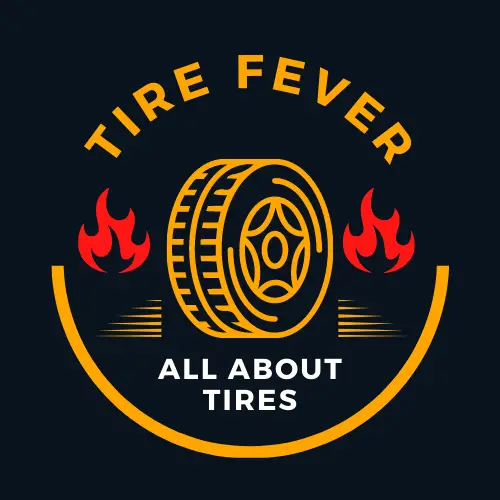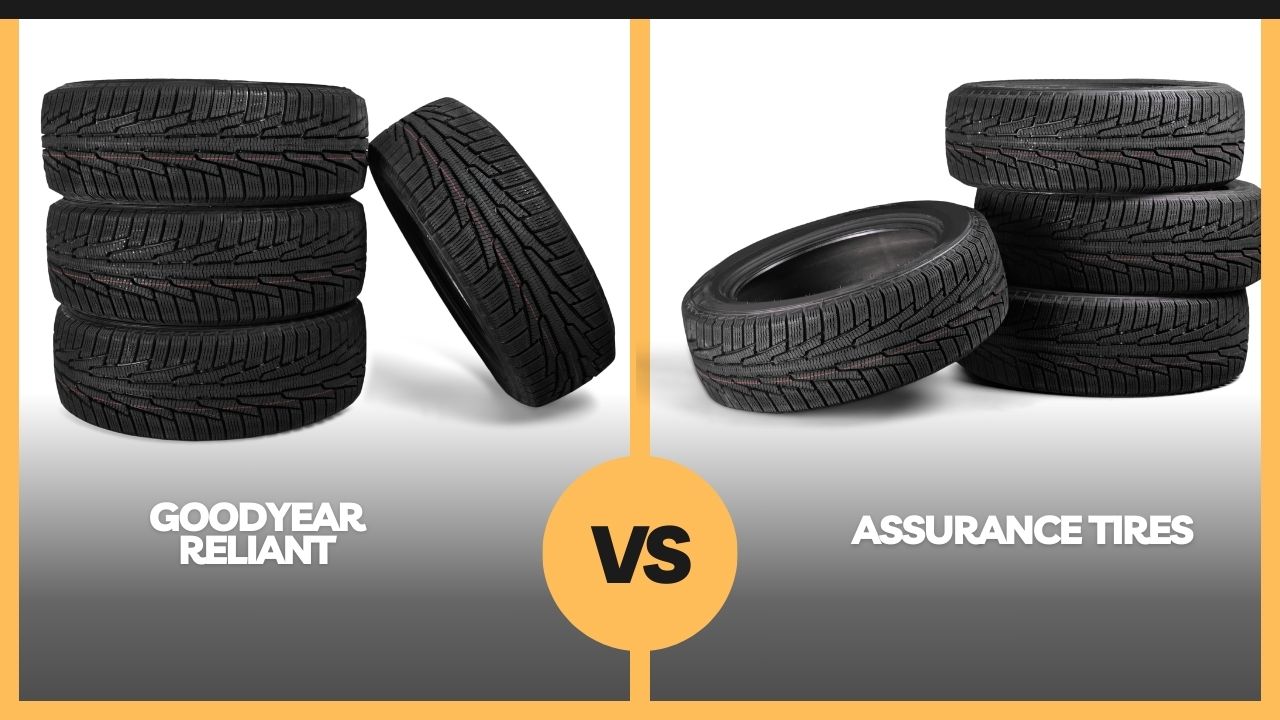Are you in the market for new tires but feeling overwhelmed by the countless options available? Look no further! Today, we’re going to explore the differences between Goodyear Reliant and Assurance tires, helping you make an informed decision that suits your needs and preferences.
When it comes to choosing the right tires for your vehicle, it’s crucial to consider factors such as performance, durability, and safety. Both the Goodyear Reliant and Assurance tires have their own unique features and benefits, making them popular choices among drivers. By examining their key characteristics, we can determine which option is the best fit for you.
The Historical Journey of goodyear reliant
The Goodyear Reliant was a line of compact cars produced by the Goodyear Tire and Rubber Company from 1981 to 1984. It was Goodyear’s attempt to diversify its business and enter the automotive industry. The Reliant was designed to be an affordable and fuel-efficient vehicle, targeting the growing demand for compact cars during that time.
One of the noteworthy products in the Goodyear Reliant lineup was the Reliant K. Introduced in 1981, it was a four-door sedan powered by a 2.2-liter four-cylinder engine. The Reliant K offered a comfortable ride and decent fuel economy, making it a popular choice for budget-conscious consumers. Another notable variant was the Reliant LE, which featured a more luxurious interior and additional features.
Despite its initial promise, the Goodyear Reliant faced several challenges. The company struggled to compete with established automakers, and the Reliant’s sales were disappointing. Goodyear eventually decided to exit the automotive industry and sold the rights to the Reliant to the French automaker Renault in 1984. This marked the end of the Goodyear Reliant’s production, leaving behind a brief but interesting chapter in the company’s history.
The Historical Journey of assurance tires
Assurance Tires is a brand that has been in the tire industry for several decades. Founded in the early 1970s, Assurance Tires quickly gained recognition for their commitment to quality and performance. They have consistently focused on providing customers with reliable and durable tires for various vehicles, including cars, trucks, and SUVs.
Over the years, Assurance Tires has introduced several noteworthy products that have become popular among consumers. One of their notable offerings is the Assurance Fuel Max tire, which was designed to enhance fuel efficiency without compromising on safety and performance. This tire incorporates innovative technologies to reduce rolling resistance and improve mileage, making it a preferred choice for eco-conscious drivers.
In recent years, Assurance Tires has also introduced the Assurance WeatherReady tire, which is specifically designed to provide excellent traction and handling in all weather conditions. This tire features a unique tread pattern and advanced rubber compounds that enhance grip on wet, dry, and snowy roads, ensuring a safe and comfortable driving experience. With a wide range of reliable and high-performing tires, Assurance Tires continues to be a trusted brand in the tire industry.
You May Also Like:bridgestone vs goodyear winter tires
In a hurry here are our top 6 tire recommendations:
- Best Budget Tires
- Best Mid-Range Tires
- Best All-Season Tires
- Best Summer Tires
- Best Winter Tires
- Best Performance Tires
goodyear reliant : Pros and Cons
When it comes to tire selection, every tire brand showcases a distinct array of advantages and disadvantages. Below are the pros and cons of goodyear reliant
Pros:
- Excellent traction on both wet and dry roads
- Durable and long-lasting
- Smooth and comfortable ride
- Good fuel efficiency
- Reasonably priced
Cons:
- Not suitable for snowy or icy conditions
- May produce some road noise
- Limited availability in certain sizes
assurance tires : Pros and Cons
When it comes to tire selection, every tire brand showcases a distinct array of advantages and disadvantages. Below are the pros and cons of assurance tires
- Pros of Assurance tires:
- Excellent traction on both wet and dry roads
- Long-lasting tread life
- Comfortable and smooth ride
- Cons of Assurance tires:
- Higher price compared to other tire brands
- Limited availability in certain sizes
Also Read: goodyear wrangler vs michelin defender
Comparison: goodyear reliant vs assurance tires Key Differences
When comparing goodyear reliant and assurance tires, there are several key differences to consider. These differences include pricing, warranties, fuel efficiency, comfort, wet performance, dry performance, winter performance, and noise performance. Check out these other comparisons.
Let’s now dive deeper into how goodyear reliant and assurance tires perform in each of these key focus areas.
Pricing:
- Goodyear Reliant tires are generally priced lower than Goodyear Assurance tires.
- Reliant tires are budget-friendly options, suitable for everyday driving needs.
- Assurance tires are priced higher due to their advanced features and technologies.
- Assurance tires offer better traction, handling, and performance compared to Reliant tires.
- Reliant tires may have a shorter tread life compared to Assurance tires.
Warranties:
- Reliant tires have a limited warranty of up to 65,000 miles, while Assurance tires have a limited warranty of up to 80,000 miles.
- Reliant tires offer a 30-day satisfaction guarantee, allowing customers to return the tires if not satisfied, while Assurance tires do not have this guarantee.
- Assurance tires come with a 6-year tread life limited warranty, while Reliant tires do not specify a separate tread life warranty.
- Both tire models offer a limited warranty against defects in workmanship and materials, covering the cost of replacement within a specified period.
Fuel Efficiency:
- Goodyear Reliant tires have a lower rolling resistance, resulting in better fuel efficiency.
- Assurance tires have a slightly higher rolling resistance, leading to slightly lower fuel efficiency compared to Reliant tires.
Comfort:
- The Goodyear Reliant tires offer a comfortable ride with their optimized tread pattern and advanced rubber compound.
- The Goodyear Assurance tires provide a smoother and quieter ride due to their refined tread design and noise-reducing technology.
- Reliant tires may offer slightly better handling and responsiveness on the road.
- Assurance tires prioritize comfort and reduce road noise for a more enjoyable driving experience.
- Both tire models are designed to provide a comfortable ride, but Assurance tires excel in terms of smoothness and noise reduction.
Wet Performance:
- Reliant tires have a silica-based tread compound for enhanced wet traction.
- Assurance tires feature a specialized tread pattern for improved water evacuation.
- Reliant tires have circumferential grooves to resist hydroplaning.
- Assurance tires have wide lateral grooves for better wet grip.
- Reliant tires offer a higher level of wet performance compared to Assurance tires.
Dry Performance:
- Reliant tires offer better dry performance due to their advanced tread compound and optimized tread pattern.
- Assurance tires have a slightly lower dry performance compared to Reliant tires.
- Reliant tires provide enhanced grip and stability on dry roads.
- Assurance tires may have a slightly longer braking distance on dry surfaces.
- Reliant tires offer improved handling and responsiveness in dry conditions.
Winter Performance:
- Reliant tires have a silica-based tread compound for enhanced wet traction.
- Assurance tires feature a specialized tread pattern for improved water evacuation.
- Reliant tires have circumferential grooves to resist hydroplaning.
- Assurance tires have wide lateral grooves for better wet grip.
- Reliant tires offer a higher level of wet performance compared to Assurance tires.
Noise Performance:
- Goodyear Reliant tires have a noise performance rating of 3 out of 5, indicating average noise levels.
- Goodyear Assurance tires have a noise performance rating of 4 out of 5, indicating quieter noise levels.
Also Read:goodyear assurance weatherready vs michelin latitude tour
Use goodyear reliant if:
Use Goodyear Reliant if you are looking for budget-friendly tires that offer excellent traction on both wet and dry roads, a smooth and comfortable ride, good fuel efficiency, and durability. However, they may not be suitable for snowy or icy conditions and may produce some road noise.
Use assurance tires if:
Use Assurance tires if you prioritize excellent traction on both wet and dry roads, long-lasting tread life, and a comfortable and smooth ride. Despite the higher price compared to other tire brands and limited availability in certain sizes, Assurance tires offer advanced features and technologies that enhance performance and provide a superior driving experience.
You May Also Like: Yokohama Tires vs Toyo Tires
Final Thoughts
- The Goodyear Reliant and Assurance tires both offer excellent traction on wet and dry roads, durability, a smooth ride, and good fuel efficiency.
- However, the Reliant tires are not suitable for snowy or icy conditions and may produce some road noise, while the Assurance tires have a higher price compared to other brands and limited availability in certain sizes.
- Overall, the ultimate winner between the two depends on the specific needs and preferences of the consumer.
This post contains affiliate links. Read the full disclosure here.


I am passionate about all things automotive and have a deep understanding of the topic. As a mechanic, I use my free time to share knowledge of everyday challenges that any car owner can experience – helping you make informed decisions about tires.

